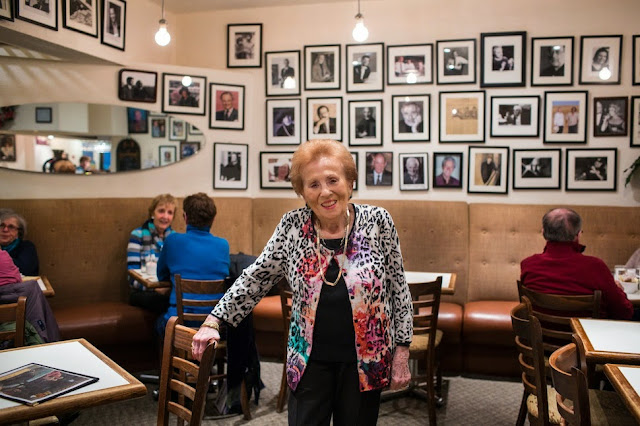Canadian Culinary Stars at Savour Stratford 2014
Canadian Culinary Stars at Savour Stratford
By BRYAN LAVERYSince its inception six years ago, Savour Stratford Perth County Culinary Festival has been a hands-down triumph. The event is an opportunity to meet and engage with a genuine fraternity of talented tastemakers and culinary advocates. A mecca for food enthusiasts and professionals, it has become one of Ontario’s most prestigious culinary festivals – if not Canada’s. In many ways Savour Stratford has become as much a cultural celebration as it is a gastronomical one.
By changing the date of the festival from fall to mid-summer, the organizers hoped for increased accessibility, inclusivity and better weather. With two official days of sipping, sampling and taste education the festival again celebrated farm-to-table ideology and what modernist chefs are calling the “new culinary regionalism”.
“Coast to Coast to Coast”, was the theme of this year’s festivities, as the chefs visiting the festival from Newfoundland to British Columbia shared their regional food culture and their own long-standing traditions and culinary expertise. Children’s programming included worm composting, earth sundaes and dessert
veggies, as well as chef Jeff Stewart’s informative teachings on the benefits of eating bugs.
Food and wine enthusiasts once again flocked to the riverfront festival, which was located along Veterans Drive and York Street, with the Toronto Star Culinary Stage occurring at the former Nancy Campbell building and tastings being held at the Knox Presbyterian Church amphitheatre. The area was bustling with participants taking in the artisan’s market vendors, tutored talks and the gourmet tasting tents that are a signature draw.
On the back terrace of Monforte on Wellington, the festivities began with a welcoming reception. It was the perfect summer evening for alfresco dining. The staff proffered a pair of lavish cheese and charcuterie boards and provided guests with an intelligent tutorial about the provenance of each item.
During Saturday’s GE Café Series, we attended a five-course lunch prepared at Stratford’s Local Community Food Centre by chefs Dale Mackay of Ayden Kitchen and Bar in Saskatoon, and Derek Dammann of Maison Publique in Montreal, and featuring winemaker Dan Sullivan of Rosehall Run in Prince Edward County.
This lunch was perhaps the most indulgent of the events being offered and was moderated by Claudia Bianchi co-owner of Toronto’s venerated Actinolite restaurant. Coincidentally, Actinolite was recently decreed by Toronto Globe and Mail dining critic Chris Nuttall-Smith as “one of the most essential places to eat in Ontario, if not in Canada.”
We were presented with an amuse-bouche of spot prawns with marinated radishes, cherry tomatoes and chilli, which was followed by extravagantly thick slices of raw and immaculately firm British Columbia sockeye salmon, complemented with a tomato gelée vinaigrette, salmon roe, and basil seeds. This was followed by pan-roasted, melt-in-your-mouth loin of British Columbia halibut (sourced near Haida Gwaii) and served with cucumber yogurt, dill, fava beans and salty, crunchy sea asparagus.
The next course was smoked and charcoal-seared Frost Village pork belly, served with braised kale and plums. Dan Sullivan described the 2011 JCR Pinot Noir he’d chosen to pair with the pork belly as “the purest iteration of what (his) land does”. Chef MacKay, explained that our dessert, a small dice of firm-to-the-bite strawberry poached rhubarb with vanilla crémeux and pie crust crumble, had been prepared with rhubarb he’d picked from his Saskatoon neighbour’s backyard.
Sullivan’s description of how the wave of agriculture and wineries has turned around the Prince Edward County economy was a compelling case for culinary tourism.
Several of the guest chefs that returned to Stratford this year, including James Walt of Whistler’s Araxi, and Northwest Territories’ chef Rich Francis, who strives to raise the profile on modern aboriginal and Northern Canadian cuisine, are graduates of the Stratford Chefs School.
This year the festival supported a variety of educational and enrichment activities that made the events programming its most welcoming and informative ever.
Chef Derek Dammann of Maison Publique in Montreal (co-owned by British celeb-chef Jamie Oliver) who is known for his charcuterie and dishes like lamb tartare, seal-lami (salami made with seal) and duck testicle pasta, took to the Toronto Star Culinary Stage twice. He demonstrated how to prepare the delicious raw sockeye salmon and the pork belly he’d made earlier for the GE Café Series.
Chefs Carl Heinrich and Ryan Donovan of the ingredient focused and technique driven Richmond Station in Toronto devoted their segment to the tenets of nose-to-tail cuisine and whole animal butchery. With tongue-in-cheek the chefs demonstrated how to make presskoff (headcheese) and charcuterie.
Chef Todd Perrin of Mallard Cottage, in Quidi Vidi Village on the outskirts of St. John’s, is known for using Newfoundland ingredients in non-traditional ways (like re-imagining seal flipper pie) showcased his sustainable sea-to-table repertoire with a boudin blanc (white sausage) of cod fish and pork.
Two-Michelin-star awarded, youngest Grand Chef in the world and Top Canada winner Dale Mackay, a protégé of chef Gordon Ramsay, paired Saskatchewan produce with locally sourced walleye, black beluga lentils, tomato butter sauce and basil oil.
Chef Rogalski, of Calgary’s Rouge and Bistro Rouge, gave a lengthy and humorous riff on how to prepare a collapsed Gouda soufflé.
Chef James Walt of Whistler’s Araxi presented Ocean Wise approved sustainable west coast seafood. Chef gave his thoughts on aquaculture and showed the audience how to cure salmon, and followed that by demonstrating how to make a ceviche of geoduck clams, spot prawns, octopus, wild scallops and wild salmon.
Another high point of the weekend event was the poignancy and passion of the pioneering “Women in Food” breakfast panelists at the Church Restaurant. A stellar line-up of inspirational women in agriculture was moderated by The Cookbook Store’s stalwart Alison Fryer. They shared anecdotes on the challenges of cheese-making, shepherding, heritage breeding, organic farming and innkeeping.
The panelists included Susan McDonough of Smokey Creek Farms, who had the audience in stitches with her references to a hypothetical 1-800-Farmboy. Culinary innovator and cheesemaker Ruth Klahsen of Monforte Dairy made the observation that “food needs to be valued in a different way and consumers need to step up and pay for it.”
The panel was rounded out by other agricultural and ecological activists including Ingrid de Martines, a well-known heritage pork producer; Pam Rogers of Kawthoolei Farm Organics; Miriam Streiman of Mad Maple Country Inn; and Gillian Flies of The New Farm. All the women came to farming, in part, from the standpoint of improving the world through access to food.
The pièce de résistance was the Grand Tasting, a stylish garden party in two elegant marquees fronting the Avon River. The tasting showcases chefs and producers who are paired to create a truly terroir-driven regional tasting experience. Besides the tasting samples there were VQA wines, craft brews and locally-created beverages.
Savour Stratford and its partners continue to successfully link food to place with the still emerging modern cuisine du terroir. Coast to Coast to Coast one can see that the local food movements are regional culinary revolutions in the collective mindset of innovative chefs and farmers across Canada.











Comments
Post a Comment